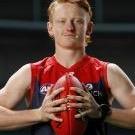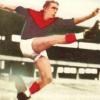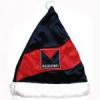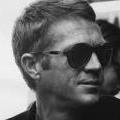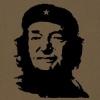Leaderboard
Popular Content
Showing content with the highest reputation on 05/01/12 in all areas
-
It is no surprise that there is less running and more drill work. This was mentioned by David Misson in training updates pre-Xmas that after the break the focus would turn to game plan and ballwork rather than miles in the legs (focus pre-xmas).2 points
-
1 point
-
2011: THE YEAR THAT WAS by Whispering Jack Melbourne fans have experienced some tough times since the 50s and 60s and the year now ending will not be remembered fondly by them. In many ways, 2011 was among the most frustrating experienced by those of us who have suffered for so long waiting for the glory of days past to return. Like many before it, season 2011 began amid promise and the expectation of improvement but ended delivering little other than disappointment, although there was a twist in the tail of the season's aftermath that might just deliver some hope for the future. The year was dominated by one issue which CEO Cameron Schwab described as a "black cloud" over the club. Would former number one draft selection Tom Scully take the money and run off to the Greater Western Sydney franchise which was due to open its doors for business in 2012 under veteran coach Kevin Sheedy and heavily funded by the AFL? The rumour mill was buzzing as early as February to the effect that the Giants had already snared the young Demon midfielder for huge coin amid speculation that the AFL was deeply involved and had smoothed the way for the recruiting coup to happen once the season was over. Scully was coaxed into appearing at a press conference in early March at which he gave an assurance that nothing had been decided; he would make up his mind about his future at the end of the season. He said he was not even aware of the extent of any offers that might have made for his services and he maintained the line almost until the moment when he and his family caught a flight to have a look around Sydney on a Sunday morning in early September. The sight of the harbour bridge from a jet circling high above was apparently enough to swing the deal. By mid-afternoon on the same day, he was not only a Giant but spruiking his devotion for the nascent football club. Back in the early days of the saga, Melbourne's ever insightful chairman Jim Stynes was critical of a system that encouraged young players to tell lies to their clubs. This alone should have been enough to arouse suspicions about the club's young midfielder. In any event, Scully's "assurances" did nothing to deter the almost daily speculation over his future until it undoubtedly became a major distraction for the club. Eddie McGuire was adamant on his radio programme before the first ball was bounced in anger saying he knew for a fact that the youngster was on his way north. By mid year, most commentators believed this to be the case. Demon champion David Schwarz announced to his television and radio audiences that he was "98% sure" that Scully had jumped ship and that the evidence at his disposal was compelling. Later revelations including bizarre reports of a job offer made by GWS to Scully's father as early as November, 2010 confirmed in our minds that the lad was indeed, pulling our collective legs all the while. And though most did not begrudge him the money, the apparent deception to the club, his teammates and fans left a bad taste in the mouth. The loss of a promising young player is always a bitter pill to swallow but the fact that many considered two draft picks in the middle of the first round inadequate compensation for a number one selection coupled with Kevin Sheedy's gloating and AFL CEO Andrew Demetriou's compliments to GWS over the coup did nothing to douse suspicions of AFL complicity in a deal many consider to be nothing short of scandalous. The Scully saga was big enough to overshadow the departure of Dean Bailey and the background story of internal rumblings over the position of the CEO even as Melbourne's season unravelled in the wake of a mammoth 186 point defeat at the hands of Geelong at Skilled Stadium on 30 July - a date that might yet assume major significance in the club's history but more of that later. Melbourne faced 2011 with one of the competition's youngest lists following the retirement of James McDonald and the departures of Cameron Bruce and Brad Miller. In the absence of the former, Brad Green whose form in 2010 was close to his best ever, took the captaincy. Despite the youth of the playing list, things began well enough for the club when it successfully negotiated the novelty of two half games in Adelaide for the NAB Cup opening in February. However, something appeared to be amiss when the team played poorly and was overwhelmed for strength in its remaining pre season matches. Still, that was regarded as part of the preliminaries, not to be taken quite seriously, particularly with many good players like All Australian James Frawley, Jordie McKenzie, Scully and others sidelined during the preseason with injuries. The opening game against the Swans was a corker ending in a draw. That was followed by a shocker of a second half against the Hawks when the team was simply overpowered. Then came a close call against the Brisbane Lions which provided the relief of four points at last. A trip north saw the team easily shrug off the new boys on the Gold Coast by 15 goals and things seemed back on track. As often happens, a trip to parts west of the Victorian state border, this time for a clash against the Eagles, was what exposed the team's weakness against exponents of the hard press and confirmed our worst fears from the Hawthorn loss. The reigning wooden spooners simply smashed their visitors whose poor skills and lack of application were visible everywhere on the field. There was nowhere for the Demons to hide. A week later and back at home, Melbourne turned on another Dr Jekyll and Mr Hyde performance when it crushed Adelaide by a record 16 goals but it turned out to be a disastrous weekend with two players, Jack Grimes and Jake Spencer (in the VFL) lost for the season, All Australian ruckman Mark Jamar out for several weeks and, as if that wasn't enough, Jack Trengove was outed for three weeks over a controversial sling tackle on Adelaide's Patrick Dangerfield whose concussion from the incident was not enough to stop him from playing and kicking five goals a matter of only six days later. Melbourne was in a spot of bother. The injury toll kept rising in the coming weeks with the losses of Aaron Davey, Colin Garland and Rohan Bail coming in quick succession as an unsettled team lost to North Melbourne (after holding an early six goal lead) and St. Kilda before its humiliation in the "bruise free" game on a late May Friday night against Carlton. The club's entire season was in danger of being derailed. There were few shining lights in all of this. Brent Moloney was a stand out, particularly after losing his place in the leadership group after an alcohol fuelled night of celebration. Stefan Martin was having a break out season, showing great improvement and manfully filling the void left by the injury toll to the ruck division. Jack Watts was starting to demonstrate some of the promise that made him a number one draft pick and Luke Tapscott was impressive in his debut season but he too succumbed to a bad hamstring injury. On the debit side, many were down on form and confidence including skipper Green on whose shoulders the responsibility of leadership weighed heavily. A great deal of soul searching and an infusion of young players into the midfield saw a turnaround against the Bombers in a game where Trengove, Watts, McKenzie, Jordan Gysberts and Scully, returning from a knee injury for his maiden game of the season, were among their team's best and rookie Dan Nicholson also showed glimpses of promise for the future. The win was the first of three out of four in a midseason patch that returned the club to the top eight. That one defeat was an 88-point smashing at the hands of Collingwood on Queens Birthday, courtesy mainly of a pathetic final quarter but this was blotted out of the memory banks six days later when an undermanned Fremantle capitulated by a single point short of 15 goals. The club's season was taking the trajectory of a roller coaster as the team notched up big wins against lowly opponents but when they met the stronger sides that applied the hard press, they were simply no match. The excuse that it had one of the youngest lists in the competition, that it was tired after four consecutive six day breaks and that there were injuries rang hollow in the face of an insipid performance against the struggling Bulldogs in the Friday night game on the first of July at Etihad. It was to be the start of an horrific month for the club with many questioning the direction of the coaching and whether the team was up to the rigours of the modern game. Suddenly, it was more than just the inability to shake off the bruise free tag - it was a combination of many things that were necessary to be able to compete with the best exponents of the modern game. Skills, fitness, strength, leadership, the ability to pressure opponents, win the hard ball and execute what for want of a better word is often described as a game plan. That is not to say that there was no game plan but rather that it was too complex and precise for this young side and it just didn't work against the bigger, stronger teams in the competition. A bye and an unconvincing win in steamy Darwin over lowly Port Adelaide offered only brief respite. Tellingly, Scully limped off late in that game with what we were told was a recurrence of his knee problem. With one or two exceptions, his ten games for the club in 2011 were quite underwhelming and seemingly devoid of true commitment to the cause. The Demons now had the task of winning three of their final seven matches to make the finals. The last three of those games were eminently winnable and the team's competitors for a berth in the top eight were floundering. They might have been a chance but unfortunately, the effort within the team was not there. In the month to follow, they would have the stuffing knocked out of them. A few days after the Port Adelaide game a brief item appeared in the Herald Sun announcing Collingwood assistant coach Mark Neeld as the favourite with punters to be Melbourne's next coach. The item passed virtually unnoticed but events over the next week or two would give the piece greater significance although its effect would only become evident somewhat further down the track. The following game saw the Hawks inflict a nine goal thrashing against a jaded Demon team that appeared not to have recovered from its trip to the tropics. Then followed a week of questioning and probing. Skipper Green was clearly under pressure when interviewed on television. The media pack was circling. Something was wrong at the club. On the second last day of July, the morning press carried a story on the woes besetting the Melbourne Football Club. A confusing scenario was presented involving player unrest, the prospect of Dean Bailey's reappointment for another year and the imminent sacking of CEO Cameron Schwab. If none of that made sense then the several hours of football that were to follow beggared disbelief. In the curtain raiser, the lowly Cats' reserves thrashed club's VFL affiliate, the Casey Scorpions, a top four contender, by 128 points. Worse was to come when a listless Melbourne outfit barely raised a whimper on its way to the second biggest losing margin in the 115 years of the competition's history. Bailey was sacked the following night. The Board handled the sacking poorly delivering the news by telephone rather than in person. At the ensuing press conference, Bailey was gracious. He dropped the gentlest of hints about fulfilling a brief to aid the club's development that most consider to be synonymous with tanking but that went nowhere because, according to the AFL's official version, the practice does not exist. Todd Viney was appointed interim coach for the rest of the season but it was effectively all over for the Demons. Like a ship foundering on the rocks, the team crashed out for the rest of its year and it barely managed to scrape a home win against the eventual wooden spooner Gold Coast. The final kick in the teeth was delivered at the Adelaide Oval in Round 24 when lowly Port Adelaide, aided and abetted by some bewildering umpiring decisions, broke their own horror run of outs against the hapless Demons who finished the year in 13th place. A few weeks later Brent Moloney won the club championship on a night when the club faithful were introduced to their new coach Mark Neeld. An ailing Jim Stynes surprised with his attendance and inspirational words and therein lay the tale of how the club went a long way to erasing the deep wounds that had cut into it during the latter third of the season. Much of the credit for that could be taken by a man who was unable to attend the best and fairest night due to work commitments at the MCG on Preliminary Final Night. Club legend Jim Stynes was diagnosed with cancer in July, 2009 and has demonstrated enormous resolve and resilience as he battled the disease. That comes as no surprise to those who were fortunate to witness his stellar career which included a then club record of games, a competition record of 244 in succession, a Brownlow Medal and multiple best and fairests - resilience became his middle name and the theme for the way in which he lifted his club out of the mire of debt and returned it to a respectable position in the eyes of the AFL, the MCC and indeed the football community. Despite his illness, he has held on to his position and thanks to the help of his able lieutenants, the club continued to thrive with growing sponsorships, connections to new partnerships including the Chinese market. However, all that was placed at risk with the events of late July 2011. The club had no football director and Stynes had different battles to fight. He sought and gained the support (albeit initially reluctantly) of friend and former teammate and club captain Garry Lyon who was deeply entrenched in his media role. There were critics who scoffed at Lyon's acceptance of the temporary position at the club akin to that of the football director but the former Demon key position player grasped the role, virtually moved into his friend's skin and started to work a minor miracle at the club. The main thrust had to be the reorganisation of the football department and appointment of a new coach but he was also there to impart some stability. Personnel were moved from here to there, others moved out and new appointments were made with a minimum of leakage of information that was once commonplace at the club. The result is there to see and awaits only the imprimatur of on field performance and success. A new coach in Neeld and a bevy of assistants including Neil Craig, leading football fitness and conditioning man David Misson and players recruited for a purpose - to put bigger and stronger bodies on the field. Mitch Clark was the club's first big trading coup in a decade. An interesting mix of players was drafted to the club in November and December. The intensity of a hard, tough pre season was also there to be seen. The black cloud is gone and is not missed at all. The dark days of July/August are gone and there is a feeling that the still young but stronger in body and mind Demons are going to be a lot harder to beat in 2012 and beyond.1 point
-
A gun rack... a gun rack. I don't even own *a* gun, let alone many guns that would necessitate an entire rack. What am I gonna do with a gun rack? Waynes World1 point
-
The constraint is that you can't be critical of players on your own club's website but there are still some interesting insights and tit bits of information if you read closely enough.1 point
-
Maybe you would prefer someone like Sheedy? Maybe the ambiguity of Mark Harvey's pressers would be better. Neeld is straight down the line, no [censored]. Just what the club and players need. Who cares how he presents to the media circus.1 point
-
Was listening to SEN the other day and they were replaying a fantastic interview with recently retired big hairy Cat, Cam Mooney. When asked about the single biggest influence on the Cats premiership dynasty, he did not hesitate in naming the appointment of Tom Harley as the club's captain at the start of 2007. "Why?" asked Nathan Thompson. "Because of his communication skills" said Mooney. Being a good player, honest, disciplined and hardworking, is essential for leadership. But the the key quality, according to Mooney, was the ability to communicate effectively and intelligently to every player on the list, from youngest to oldest and from most talented to the biggest battler. I so hope Neeld gets this decision right. It should be noted that Harley's selection was a surprise to many outside the Cats at the time, so don't be surprised if a left-field choice is named or possibly even a youngster.1 point
-
These are my principles and if you dont like them...well, I have others. Groucho Marx1 point
-
According to someone on cricinfo, it's the first time in test history there have been two 250+ run partnerships in the same innings.1 point
-
"An employee of an insurance company has made his way out on the roof of his office block in the centre of town and is threatening to jump, unless his demands for a fuller and more meaningful life are met." People Like Us.1 point
-
I almost had a psychic girlfriend but she left me before we met. - Steven Wright1 point
-
If we can manage to break that long premiership drought this decade I have no doubt that many of us will look back at 186 as a turning point for the club. Rebuilds rarely have linear improvement year on year, there are ups and downs along the way. This past year was a massive letdown but it couldn't have happened at a better time in our rebuild. We were never going to be serious contenders before 2013. This rebuild has been beautifully planned, what remains in doubt is the execution. The way I read our strategy over the past few years is- 2008 and 2009- maximise draft participation or drive the Sherman. 2010 and 2011- games into youngsters during compromised drafts. This was also the period to assess Bailey. He was always going to struggle to keep his job, only consistent improvement in these 2 years could save him. He failed, we move on. The dark blessing in the monumental failure of 186 is that it has destroyed any complacency in the club with regards to what's needed to make this rebuild a successful one. The FD was completely rebuilt in the off season. It should be noted that this is the Stynes board's first time at appointing a coach and a major FD overhaul. Nobody can claim they didn't give the Gardner boards appointments a chance. 2012- For me this is the most important year so far. No more compromised drafts, it's judgement time. More than half the list is out of contract at seasons end. To add to the pressure mature aged, big bodied rookies have been brought in to compete for spots now. Bailey may have used the word competitive a lot but Neeld has instantly conjured a lot of internal competition within the list that seems to have been lacking. 2013-I think this is where we hoped to be in the mix for top 4. Losing $cumbag may have set us back a bit but I still don't see it as impossible. I've seen a few comments around that the rebuild has failed and our kids aren't as good as we hoped they'd be. Personally I think it's still way too early to make judgements like that. Last year we went backwards largely because of the contribution of our senior players. If Green and Davey can regain form, Moloney and Rivers can maintain their form, Sylvia can find some consistency and Jamar can stay on the park, we WILL make the 8.1 point
-
As a teenager I managed to sneak into the Melbourne rooms during half time at the Arden St oval. So I had a chance to listen to the great Norm Smith in action. Melbourne, a top team then, was ahead of the aptly named 'Shinboners' by just the solitary point. Smithy was not happy and made a fiery speech which went something like this. " You are not playing against a football team, you are playing against a mob of mongrels. Ian McLean, come out here and pull down your sock! " he screamed. McLean, a little wingman, did as he was asked revealing a huge bloodied gash on his shin. "That's no accident, that's North Melbourne." He then said," Bob Johnson, pull up your jumper. Look at those stop marks! That's this mob for you!" Just at this moment, a crude comment flowed in from an outside window. Smith used this as further fuel for his 'hate the enemy' campaign. He shrieked," Listen to that ! That's North Melbourne for you. The supporters stink, the president stinks, the club stinks, so get out there and thrash 'em!" I watched spellbound at some of the players reactions. Ron Barassi, a seasoned player stood there bristling shifting his weight from foot to foot keen to get back into action. The normally placid John Beckwith looked extremely hostile as did Don Williams, Noel McMahen and Brian Dixon. Most of the team did look decidedly angry. Smithy's provocative speech had its desired effect and the Demons rattled on 12 goals in the second half to win by the comfortable margin of 6 goals. Yes, Norm Smith was the greatest coach for inspiring his troops. Just hope Neeld is tarred with the same brush.1 point
This leaderboard is set to Melbourne/GMT+11:00


